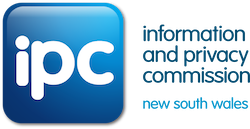Right to Know Week NSW 2025
Ensuring access to environmental information
in the digital age.
29 September — 5 October 2025
About Right to Know Week NSW 2025
28 September marks the International Day for Universal Access to Information. The United Nations declared this international day in support of the right to seek and receive information encapsulated by Article 19 of the International Covenant on Civil and Political Rights, which is a binding treaty.
The IPC celebrates an annual, week-long celebration around this international day: Right to Know (RTK) Week. Our RTK event focuses on educating NSW agencies and the public about the GIPA Act and raising awareness about rights and obligations for accessing NSW government-held information.
RTK Week will run from 29 September – 5 October 2025 and will celebrate the 2025 theme of Ensuring access to environmental information in the digital age.
IPC has been actively supporting Right to Know Week since 2014 and invites NSW public sector agencies, universities, and councils to collaborate with us to champion public sector transparency.
From the Information Commissioner
I am delighted to be leading this year's Right to Know Week NSW 2025 campaign, which focuses on ensuring access to environmental information in the digital age.
Environmental information plays a vital role in shaping how we understand, manage, and respond to the challenges facing our natural, built, and urban environments. It includes data and information about the condition of ecosystems, the impact of human activities, and the planning and regulation of infrastructure and development. This includes everything from air and water quality to climate data, biodiversity, and urban planning.
By making this information publicly available, NSW government agencies help ensure that environmental management is transparent, evidence-based, and accountable to the communities it affects.
This Right to Know Week NSW 2025, the IPC invites NSW government departments and agencies, universities, local councils, ministers’ offices and state-owned corporations to take a proactive step towards ensuring access to environmental information in the digital age.
I hope you will join me in celebrating the week.
Emeritus Professor Rosalind Croucher AM
Information Commissioner and CEO
The built environment includes all human-made surroundings that provide the setting for human activity, such as buildings, roads, parks, and infrastructure. In NSW, environmental information about the built environment includes:
- design quality and architectural standards
- urban planning and zoning regulations
- environmental amenity (e.g. noise, light, air quality)
- visual impact assessments and landscaping
- sustainable building practices and energy efficiency.
This information helps ensure that development is safe, sustainable, and enhances public health and liveability.
The natural environment refers to ecosystems and landscapes that exist without significant human alteration.
In NSW, this includes:
- forests, rivers, nature corridors, wetlands, and coastal areas
- native flora and fauna, including threatened species
- soil and water conditions
- climate and air quality data.
NSW agencies use this information to manage conservation efforts, monitor ecological health, and guide land-use decisions that protect biodiversity and natural resources.
The urban environment is where built and natural elements intersect in cities, towns, and suburbs, including:
- green infrastructure (e.g. urban forests, green roofs)
- public space planning and accessibility
- waste and recycling systems
- transport and energy consumption patterns
- climate resilience strategies for urban areas.
This data supports policies that promote sustainable urban growth, reduce emissions, and improve quality of life for residents.
What's on?
NSW Right to Know Week 2025 Event: Ensuring access to environmental information in the digital ageDate: Tuesday, 30 September 2025 |
Speakers:
• Emeritus Professor Rosalind Croucher AM, NSW Information Commissioner
• Monica Barone, CEO, City of Sydney
• NSW Government representative
Additional speakers to be announced soon
Event Overview
As NSW continues to feel the effects of increasing environmental uncertainty, ensuring public access to reliable and transparent information is more critical than ever. This event will explore how government, including local councils, and communities can proactively share and engage with environmental data and information including from climate resilience and land use planning to disaster recovery and emerging health risks.
This panel discussion will include perspectives from both academia and government, and examine the role of open data and proactive release of information, supporting emergency management, and empowering future generations. Join us for a timely conversation on how environmental information can be made more accessible, actionable, and courageous in the digital age.
2025 Right to Know Week NSW Champions
|
Audit Office of NSW |
NSW EPA NSW Fair Trading NSW Fair Trading and Regulatory Services NSW Health NSW Police Force NSW State Emergency Service NSW Treasury NSW Trustee and Guardian Office of the Director of Public Prosecutions Personal Injury Commission SafeWork NSW Single Digital Patient Record Implementation Authority SIRA State Records NSW The Cabinet Office Transport for NSW Western NSW Local Health District |
This year, we continue to run out RTK Champion Program. NSW public sector agencies can join as Champions to help spread the RTK message as well as encourage their own agency and work colleagues to get involved and promote citizen rights.
Champions of the Program will receive a pack full of digital and printable resources, as well as written content such as newsletter articles, blog posts, social media posts, educational powerpoint slides and more to make promoting the campaign easy. Agencies will also be acknowledged as a Champion here on the RTK NSW webpage and via the IPC's social media where possible.









